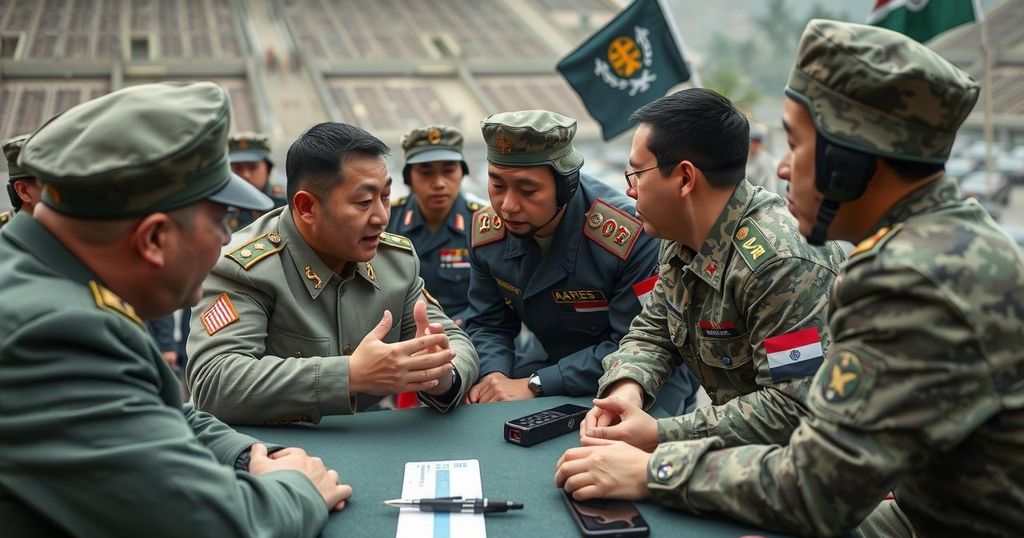Ukrainian President Zelensky has proposed exchanging two captured North Korean soldiers for Ukrainian prisoners of war in Russia. He indicated alternatives for soldiers not wishing to return home, emphasizing their potential roles in promoting peace. The captured soldiers, treated in Kyiv, have been linked to Russia’s use of North Korean troops, drawing attention to military collaborations during the conflict.
Ukrainian President Volodymyr Zelensky has proposed the exchange of two captured North Korean soldiers for Ukrainian prisoners of war held in Russia. He expressed a willingness to return these soldiers to North Korea while offering alternatives for those who do not wish to go back, stating that they would have opportunities to advocate for peace and articulate the truths of the conflict in their native Korean. The captured North Korean soldiers have been in custody since January 9 and are currently receiving medical treatment in Kyiv, where they are being interrogated with assistance from the South Korean National Intelligence Service (NIS).
Amid ongoing tensions regarding North Korea’s involvement in the conflict, President Zelensky shared images of the injured soldiers on social media. This act follows assertions by intelligence services that indicate efforts by Russia to obscure the origins of these soldiers by presenting them under false documentation that ties them to territories under Russian control. The Security Service of Ukraine reported that the soldiers’ military identity documents differed from the actual facts, including claims about their recruitment and training purposes, which suggest they may have been sent to Russia under misleading pretexts.
Concerns regarding the ethical treatment of these prisoners have been raised, with reference to the Geneva Convention, which mandates that interrogations be conducted in a language understood by the prisoners and that they be protected from undue exposure to public curiosity. While international media outlets, including the BBC, have yet to verify Ukraine’s accounts, previous reports have indicated a significant North Korean military presence in support of Russia, with estimates suggesting that at least 10,000 troops from North Korea have been deployed.
This article discusses the ongoing war in Ukraine and highlights President Zelensky’s diplomatic overtures regarding North Korean soldiers captured during the conflict. It reflects the complex geopolitical situation involving Russia, Ukraine, and North Korea, particularly amid allegations of North Korean military support for Russia, a claim reinforced by reports of North Korean troops being sent to the war front. The presence of North Korean soldiers in Ukraine raises questions about international military collaborations and the potential ramifications for relations among these nations during this critical period in global politics.
In summary, President Zelensky’s offer to exchange North Korean soldiers for Ukrainian prisoners of war underscores the intricate dynamics of the ongoing conflict in Ukraine. This situation exemplifies the broader ramifications of military alliances and the ethical considerations surrounding the treatment of captured soldiers. As the conflict continues, the implications of foreign military involvement, particularly from North Korea, will likely play a significant role in shaping the future of the region.
Original Source: www.bbc.co.uk






